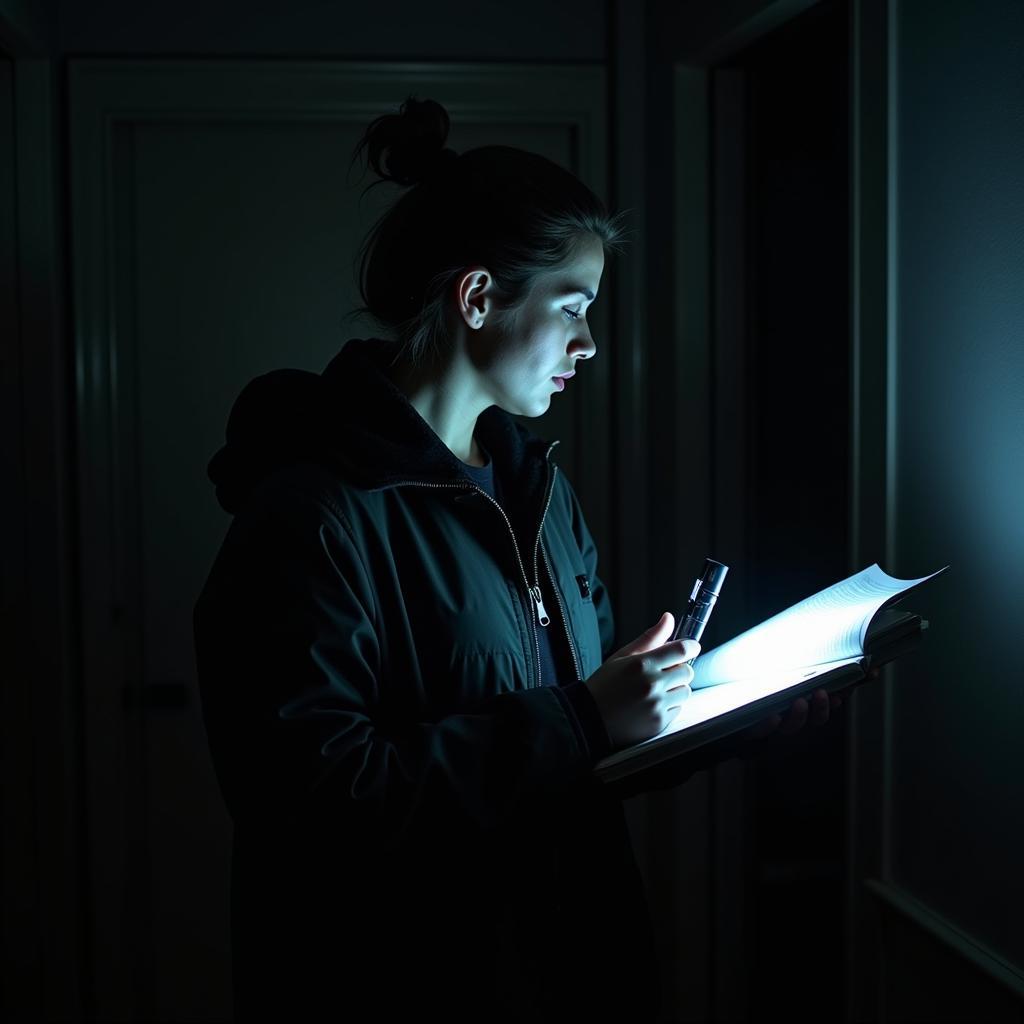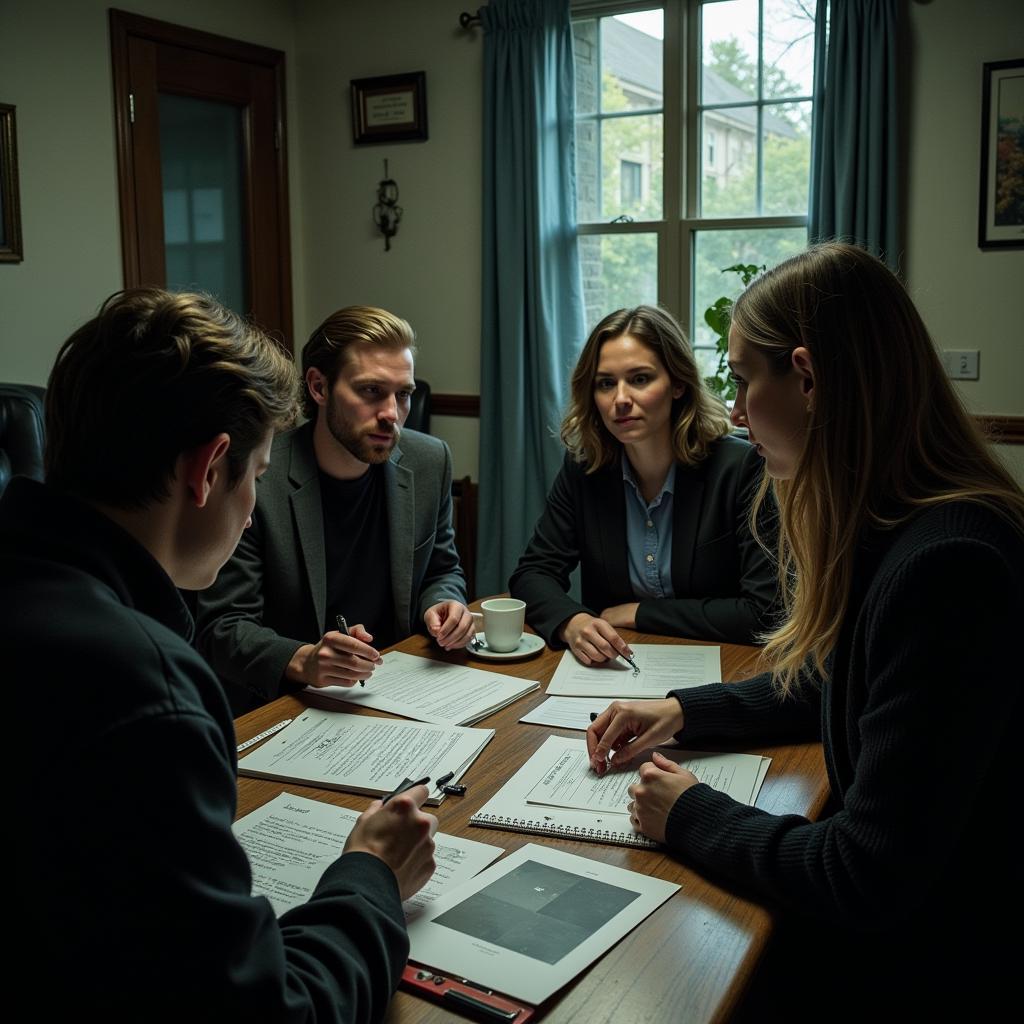Researcher Reflexivity plays a crucial role in paranormal research, influencing how we interpret evidence and shape our understanding of the unexplained. It’s the process of examining our own biases, assumptions, and beliefs, and acknowledging how they impact our research. In the often ambiguous world of paranormal investigations, understanding researcher reflexivity is paramount.
What is Researcher Reflexivity?
Researcher reflexivity isn’t about eliminating bias altogether, which is impossible. It’s about recognizing its presence and actively working to mitigate its effects. It involves critical self-reflection, questioning our motivations, and understanding how our personal experiences and perspectives shape our interpretations of events. This can involve keeping detailed field notes not only about the investigation itself, but also about our emotional and mental state during the process. For example, a researcher with a strong prior belief in ghosts might interpret ambiguous sounds as evidence, while a skeptic might dismiss them as environmental noise. Recognizing this potential for bias is the first step towards more objective research.
 Researcher Reflexivity in Paranormal Investigation
Researcher Reflexivity in Paranormal Investigation
Why is Researcher Reflexivity Important in Paranormal Research?
The very nature of paranormal research, dealing with phenomena often lacking concrete proof, makes researcher reflexivity all the more critical. Without it, our findings are more likely to be influenced by personal beliefs than objective data. By actively engaging in reflexive practices, we strive for greater objectivity and strengthen the credibility of our investigations. This is especially important when dealing with sensitive topics, such as alleged hauntings, where the emotional well-being of those involved should be a primary concern. researchers reflexivity is essential for responsible and ethical research practices.
How to Practice Researcher Reflexivity
Developing reflexivity is an ongoing process that requires continuous self-awareness and critical thinking. Some practical steps include:
- Journaling: Regularly document your thoughts, feelings, and assumptions, both before, during, and after an investigation.
- Peer Review: Discuss your findings with other researchers, seeking diverse perspectives and challenging your interpretations.
- Methodological Rigor: Employing standardized procedures and documentation methods helps minimize subjective influences.
- Acknowledging Limitations: Be transparent about the subjective elements inherent in the research process.
 Practical Application of Reflexivity in Paranormal Research
Practical Application of Reflexivity in Paranormal Research
Is a Reflexive Researcher More Effective?
A reflexive researcher is better equipped to analyze data critically and acknowledge potential biases. reflexive researcher understands that their own background and beliefs can shape their interpretations. They strive to remain objective, constantly questioning their assumptions. This commitment to self-awareness and critical analysis strengthens the validity and reliability of their research, leading to more insightful and credible conclusions.
Researcher Reflexivity: A Case Study
Consider a case where a team is investigating a reported haunting. A researcher who is highly suggestible might interpret every creak and groan as evidence of paranormal activity. However, a reflexive researcher would consider alternative explanations, such as settling of the house or wind gusts, before jumping to conclusions. 30 essential skills for the qualitative researcher can be helpful in such scenarios.
“Researcher reflexivity is about understanding the lens through which you view the world,” says Dr. Eleanor Vance, a leading figure in paranormal psychology. “It’s about recognizing that your perspective is just one of many, and being open to alternative interpretations.”
Conclusion
Researcher reflexivity is not merely an academic exercise; it’s a vital tool for anyone seeking to understand the complexities of the paranormal. By embracing self-reflection and critical analysis, we can strengthen our research, minimize bias, and move closer to a more nuanced understanding of the unexplained. Embracing reflexivity and qualitative research helps ensure more credible findings.
FAQ
- What is the biggest challenge to researcher reflexivity?
- How can I improve my reflexivity in Paranormal Research?
- Why is reflexivity important for ethical research?
- What are some common biases in paranormal investigations?
- How does reflexivity impact the interpretation of evidence?
a researcher uses debriefing when he needs to reflect on the research process.
For further assistance, please contact us:
Phone: 0904826292
Email: research@gmail.com
Address: No. 31, Alley 142/7, P. Phú Viên, Bồ Đề, Long Biên, Hà Nội, Việt Nam. We have a 24/7 customer support team.